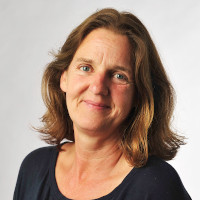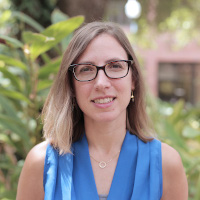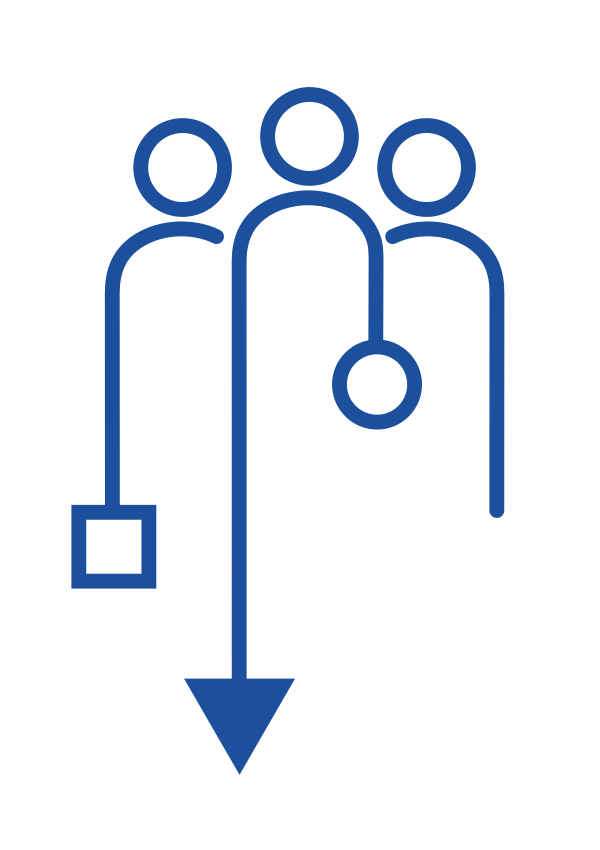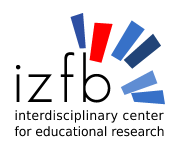Ute Schmid, Germany
AI goes to school - learning about and learning with artificial intelligence
Abstract Artificial intelligence (AI) is currently a much discussed topic evoking many expectations and fears. For a realistic assessment of the opportunities and risks of AI, basic understanding of what makes AI applications different from other computer programs is necessary. How and what AI concepts can be introduced in primary and secondary education depends on the age and the computer science background of the students. In the talk, a sample of topics and methods for introducing AI in school is presented - covering machine learning as well as automated reasoning, offering unplugged material for students without background in computer science as well as possibilities for more formal introduction of AI algorithms and AI programming. In the second part of the talk, learning analytics and intelligent tutor systems are introduced as applications of AI methods to support students and teachers. While learning analytics is mainly behavioristic with focus on applying machine learning to prediction of students’ performance, intelligent tutor systems are based on cognitive and constructivist principles with focus on AI methods for individualized diagnosis of misconceptions and feedback generation.

Short Biography Ute Schmid is a professor of Applied Computer Science with focus on Cognitive Systems at University of Bamberg. She has master degrees both in computer science and in psychology. For more than 20 years she has been teaching and researching artificial intelligence with special focus on machine learning and cognitive modeling. Her research interests are inductive programming, interpretable and human-level machine learning, as well as the generation of explanations for classifiers. Areas of application are medical diagnostics, facial expression analysis, and intelligent tutor systems. Ute Schmid dedicates a significant amount of her time to measures supporting women in computer science and to promote computer science as a topic in elementary, primary, and secondary education. She won the Minerva Award of Informatics Europe 2018 for her university. Since many years, Ute Schmid is engaged in educating the public about artificial intelligence in general and machine learning and she gives workshops for teachers as well as high-school students about AI and machine learning.
Maya Israel, USA
Countering pedagogy for the "privileged" in CS for All: A Universal Design for Learning theoretical and practical lens for addressing the needs of students with disabilities in K-8 CS education
Abstract The ongoing discourse about CS for All places great emphasis on providing all learners with early and sustained CS experiences in an equitable manner. However, what do we actually know about pedagogical approaches that can meet the needs of all learners, including those with disabilities, in early CS experiences? This talk will begin with unpacking the systemic and classroom-level barriers to inclusion. Next, both theoretical and empirical support for Universal Design for Learning (UDL) will be presented to illustrate how this framework can be used to shape instructional experiences that are more inclusive, accessible, and engaging for all learners. Finally, the complexities inherent in changing our CS education practices to be more inclusive will be illustrated through a description of a series of studies.

Short Biography Maya Israel, Ph.D. is an associate professor in the Department of Educational Technology in the School of Teaching and Learning at the University of Florida. She is also the research director at the Creative Technology Research Lab. Her research focuses on strategies for supporting learners’ meaningful engagement in science, technology, engineering, and mathematics (STEM) with emphases on computer science education and Universal Design for Learning (UDL). She is currently PI on several grants including an NSF STEM+C grant to study learning trajectories that align computational thinking with elementary math instruction. She is also PI on an NSF grant that examines instructional strategies that support struggling learners in successfully accessing computing instruction. Dr. Israel was a writer on the Framework for K-12 Computer Science Education as well as the revisions of the Computer Science Teachers Association (CSTA) Standards for Computer Science Teachers. Lastly, Dr. Israel also works with multiple school districts on meaningfully including all learners in computer science education initiatives.
Sam Aaron, United Kingdom
Sonic Pi Talk and Live Coding
Abstract Sonic Pi is a free code-based music creation and performance tool that targets both education and professional musicians. It is possible for beginners to code fresh beats, driving bass lines and shimmering synth riffs. All this whilst teaching core computer science concepts such as sequencing, functions, variables, loops, data structures and algorithms. In this discussion and performance we’ll briefly cover its history before taking a deep technical nose dive into some of the core technical innovations which enable powerful, live expression of music. We’ll explore Sonic Pi’s novel internal technologies which enable it to rhythmically synchronise concurrent threads (to the beat), deliver thread-safe deterministic randomisation and the power of representing state in its internal totally-ordered event-store.
Short Biography Dr Sam Aaron is the creator of Sonic Pi, an internationally renowned live coding performer, public speaker and science communicator. Sam has a PhD in Computer Science and held a research position at the University of Cambridge Computer Laboratory where he initially developed Sonic Pi. Sam regularly engages audiences of all ages and backgrounds with the creativity of code through keynotes, workshops and performances. He has live coded internationally featuring in the Royal Albert Hall, Berlin Warehouses, Music Festivals, on the BBC and even school assemblies. Sam has received two Google prizes for his Open Source work, was listed amongst Fast Company’s “Most Creative People in Business 2020” and The Rolling Stone magazine described his Moogfest performance as “transcending the present”.



 © Stadt Essen
© Stadt Essen

